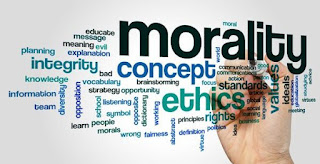Paulo Sérgio Boggio, et al. (2023)
Philosophical Psychology
DOI: 10.1080/09515089.2023.2278637
Abstract
Morality has traditionally been described in terms of an impartial and objective “moral law”, and moral psychological research has largely followed in this vein, focusing on abstract moral judgments. But might our moral judgments be shaped not just by what the action is, but who is doing it? We looked at ratings of moral wrongness, manipulating whether the person doing the action was a friend, a refugee, or a stranger. We looked at these ratings across various moral foundations, and conducted the study in Brazil, US, and UK samples. Our most robust and consistent findings are that purity violations were judged more harshly when committed by ingroup members and less harshly when committed by the refugees in comparison to the unspecified agents, the difference between refugee and unspecified agents decays from liberals to conservatives, i.e., conservatives judge them more harshly than liberals do, and Brazilians participants are harsher than the US and UK participants. Our results suggest that purity violations are judged differently according to who committed them and according to the political ideology of the judges. We discuss the findings in light of various theories of groups dynamics, such as moral hypocrisy, moral disengagement, and the black sheep effect.
Here is my summary:
The study explores how moral judgments vary depending on both the agent committing the act and the nationality of the person making the judgment. The study's findings challenge the notion that moral judgments are universal and instead suggest that they are influenced by cultural and national factors.
The researchers investigated how participants from the UK, US, and Brazil judged moral violations committed by different agents: friends, strangers, refugees, and unspecified individuals. They found that participants from all three countries generally judged violations committed by friends more harshly than violations committed by other agents. However, there were also significant cultural differences in the severity of judgments. Brazilians tended to judge violations of purity as less wrong than Americans, but judged violations of care, liberty, and fairness as more wrong than Americans.
The study's findings suggest that moral judgments are not simply based on the severity of the act itself, but also on factors such as the relationship between the agent and the victim, and the cultural background of the person making the judgment. These findings have implications for understanding cross-cultural moral conflicts and for developing more effective moral education programs.





